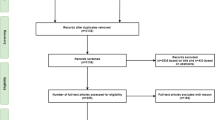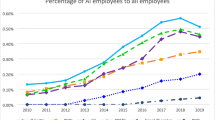Abstract
This paper uses Perrow’s sociological framework as a basis for a comparative organisation analysis of the impact of expert systems on organisational issues. The study analyses the relative impact of expert systems on two different types of accounting work: auditing and tax. The results indicate an impact on factors that ultimately improve productivity. The aggregate results indicate that expert systems are found to allow the user substantial control of search for solutions and discretion on whether to follow system recommendations, increased access to top management, and a decrease in the need for supervision. The systems allow the user the ability to solve a broader range of problems, while allowing the user the ability to perform more work. The comparison of auditing and tax expert systems indicates that audit systems seem to allow for greater control over search. Tax systems seem to allow more work to be done without supervision, make more decisions immediately, and allow the user to make a wider range of decisions.
Similar content being viewed by others
References
Baldwin-Morgan, A. (1994) The impact of an expert system for audit planning: Evidence from a case study,International Journal of Applied Expert Systems. 2(3), 159–174.
Baldwin-Morgan, A. (1995) Studies of the impact of accounting-related expert systems: Comparison of methods,IEEE Conference on Artificial Intelligence Applications, IEEE Press, Washington, D.C., 72–77.
Carmichael, D. and Willingham, J. (1989)Auditing Concepts and Methods, McGraw Hill, New York.
Draft, R., and MacIntosh, N. (1978) A new approach to the design and use of management information,California Management Review. XXI: 1, 82–92.
Dean, J., Yoon, S., and Susman, G. (1992) Advanced manufacturing technology and organisation structure,Organisational Science. 3(2).
Drucker, P. (1988) The coming of the new organisation,Harvard Business Review, January–February, 45–53.
Duchessi, P. and O’Keefe R.M. (1995) Understanding expert system successes and failure,Expert Systems With Applications, 9(2), 123–133.
Kelly, K., Ribar, G., and Willingham, J. (1987) Interim report on the development of an expert system for the auditor’s loan loss evaluation,Proceedings of the Touche Ross/University of Kansas Audit Symposium. 167–188.
Lynch, B. (1974) An empirical assessment of Perrow’s technology construct,Administrative Science Quarterly, Sept. 338–356.
March, J. and Simon, H. (1958)Organisations, New York, Wiley.
Messier, W. and Hansen, J. (1987) Expert systems in auditing: The state of the art,Auditing: A Journal of Theory and Practice. 7(1), 94–105.
Michaelsen, R. and Messier, W. (1987) Expert systems in taxation,Journal of The American Taxation Association. 7–21.
O’Keefe, R., O’Leary, D., Rebne, D., and Chung, Q. (1993) The impact of expert systems in accounting: System characteristics, productivity and work unit effects.International Journal of Intelligent Systems in Accounting, Finance and Management. 2(3), 177–189.
Orlikowski, W. (1992) The duality of technology: Rethinking the concept of technology in organisations,Organisational Science. 3(3).
Perrow, C. (1967) A framework for the comparative analysis of organisations,American Sociological Review. 194–208.
Perrow, C. (1970)Organisational Analysis: A Sociological View, New York, Tavistock publication.
Perrow, C. (1986)Complex Organisations, Random House, New York.
Sviokla, J. (1990) An examination of the impact of expert systems on the firm,MIS Quarterly, 14(2), 127–140.
Trewin, J. (1996) The impact of an expert system on a professional accounting organisation,International Journal of Intelligent Systems in Accounting, Finance and Management. 5(3), 185–197.
Withey, M., Daft, R., and Cooper, W. (1983) Measures of Perrow’s work unit technology: An empirical assessment of a new scale.Academy of Management Journal, 1983. 26(1), 45–63.
Author information
Authors and Affiliations
Corresponding author
Rights and permissions
About this article
Cite this article
O’Leary, D.E., O’Keefe, R.M. The impact of artificial intelligence in accounting work: Expert systems use in auditing and tax. AI & Soc 11, 36–47 (1997). https://doi.org/10.1007/BF02812437
Issue Date:
DOI: https://doi.org/10.1007/BF02812437




